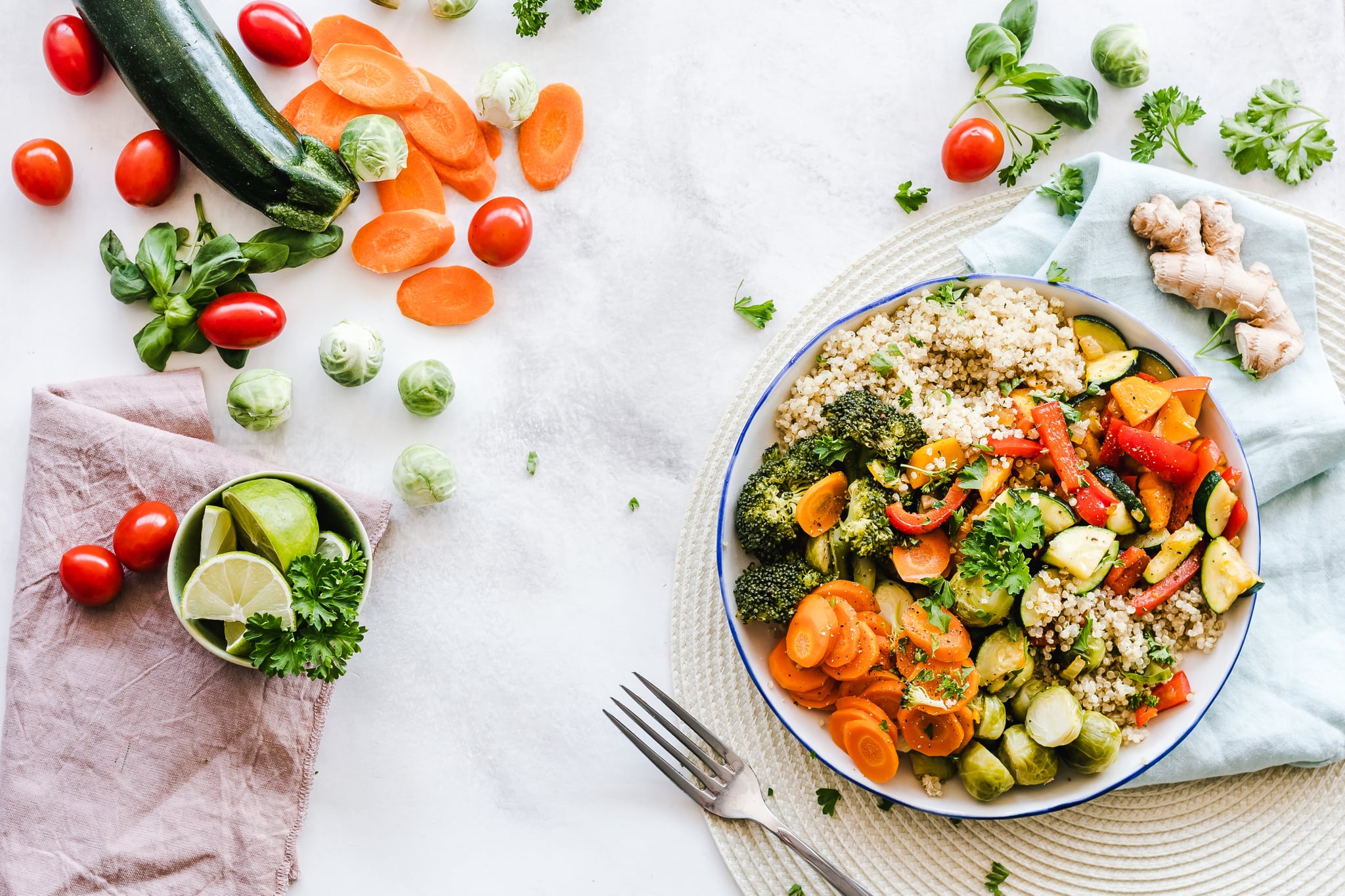Paleo vs. the Mediterranean Diet
Here's What the Paleo Diet and Mediterranean Diet Have in Common — and What They Don't

If you're on the hunt for a plan to help you kick-start (or restart) healthier eating habits, you've likely come across two popular mainstays in this arena: the Mediterranean diet and the Paleo diet. While both claim a number of health benefits (including weight loss), there are some major differences that may make or break your commitment to either plan. This guide can help you decide which one is right for you.
What Sets Paleo and the Mediterranean Diet Apart?
"The Paleo diet focuses on foods that were available to humans during the Paleolithic era," Amanda Montalvo, RD, of Kettlebell Kitchen, told POPSUGAR. "This includes all types of meat, seafood, eggs, vegetables, nuts, seeds, and minimal fruit, while avoiding all grains, dairy, and processed sugars." (Hello, bacon!)
The Mediterranean diet has roots in more recent history — it's based on the eating patterns of those in the Mediterranean region — and includes a wide variety of foods, such as healthy fats, lean proteins, and naturally occurring fibre from plant-based foods like grains, legumes, nuts, oils, and seeds, explained Rachel Fine, MS, RDN, CDN, CSSD, owner of To the Pointe Nutrition.
But while both diets focus on real, unprocessed foods with healthy fats and vegetables as staples at every meal, it's the evolutionary aspect of the Paleo diet that separates one from the other. "The main focus on the Paleo diet is only eating certain foods that we were built to eat," Amanda said. "The Paleo diet deems that grains, dairy, and processed sugars are inflammatory to the body and cause poor nutrient absorption, while the Mediterranean diet emphasises whole grains and dairy products with a limit on animal protein."
Does This Mean Paleo Is Stricter?
Yes. Both the Paleo and Mediterranean diets prioritise plant-based sources of carbs, but the restriction Paleo puts on grains makes this way of eating more rigid and can keep you from reaping the benefits of whole grains. "Minimally processed carbs like farro, barley, oats, and buckwheat offer a big nutritional bang per bite as they are high in both naturally occurring (intact) fibres and immune-boosting antioxidants and phytonutrients," Rachel told POPSUGAR. Plus, restricting your carb intake too much may lead to increased cravings for carbs (both good and bad), making it harder to stick to Paleo long-term.
Which One Should You Try?
"If you are completely new to eating healthy, then starting with the Mediterranean diet is a lot less restrictive and will increase variety," Amanda said. "If you have a history of digestive issues, food allergies, eczema, arthritis, autoimmune conditions, or have more experience with dieting, then you will likely benefit more from a Paleo diet." Rachel agreed, noting that the Mediterranean diet is more sustainable largely because of the focus on all three macronutrients (protein, fat, and carbs), which is one reason it's considered more of a lifestyle than a diet.








